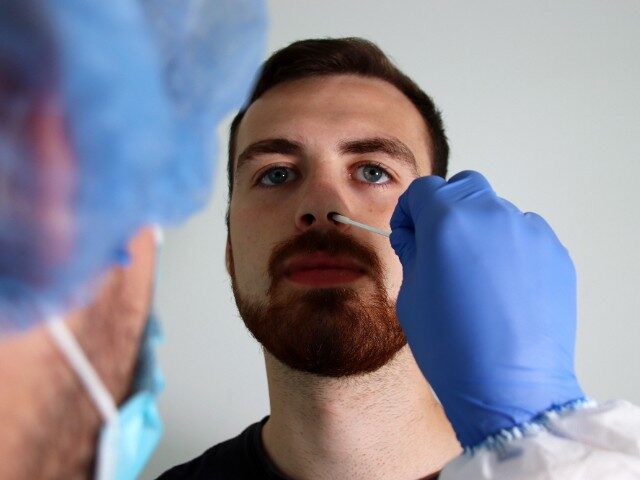U.S. health officials predict the approaching cooler months will be similar to those in 2022 concerning viruses affecting the nation.
The number of hospitalizations may also amount to a similar number as last year, said Dylan George, PhD, director of the Center for Disease Control and Prevention’s (CDC) Center for Forecasting and Outbreak Analytics, MedPage Today reported Wednesday.
The health agency predicts a “moderate COVID-19 wave” alongside normal influenza and respiratory syncytial virus (RSV) cases, George said while also cautioning that officials need to be careful regarding their assessments due to uncertainties.
“While the projection for COVID is for a ‘moderate season’ in a post-pandemic world, it’s important to recognize that ‘having three circulating respiratory illnesses is worse than having two,’ George noted,” the MedPage Today article said.
According to the CDC, symptoms of the coronavirus include fever or chills, cough, shortness of breath, body aches, loss of taste or smell, nausea or vomiting, and diarrhea.
“Influenza (Flu) and COVID-19 are both contagious respiratory illnesses, but they are caused by different viruses,” the agency said, adding, “You cannot tell the difference between flu and COVID-19 by symptoms alone because some of the symptoms are the same.”
In September, health officials warned of what some media outlets were calling a “tripledemic” of coronavirus, flu, and RSV over the coming months, according to Breitbart News.
Meanwhile, a CBS News poll from September found most Americans were not worried about variants of the coronavirus.
As Breitbart News reported:
The survey asked respondents to reveal their concern about new variants of the virus and found most, 52 percent, revealing that they are “not concerned.” That reflects a flip flop from the results in 2021 with the omicron variant of the virus. At the time, 58 percent of individuals expressed concern.
…
Further, less than half of all Americans, 43 percent, said they plan to get the next coronavirus vaccine booster, and that percentage is even less among independents and Republicans — 37 percent and 21 percent, respectively. Nearly three-quarters of Democrats, 73 percent, said they plan to get the booster.
“Notably, the vaccines do not prevent one from contracting the virus nor transmitting it, despite misinformation touted by President Biden in 2021,” the outlet concluded.


COMMENTS
Please let us know if you're having issues with commenting.